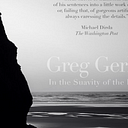On a Passage from James Salter’s Light Years
“He was self-indulgent, a failure. He had not abandoned failure; it was his address, his street, his one comfort. His life was one of intimacy and betrayal. Of himself he wrote: extravagant, false. He was impractical, moody, a deviate. He suffered and loved like a woman, he remembered the weather and the menus in restaurants, hours that were like a broken necklace in a drawer. He kept everything, he announced, he kept it here, tapping his chest.” p.78
Has there ever been a writer like James Salter? It seems not, at least not in this country. His brand of desolation didn’t have the grandeur of Henry James, even if he wrote of his characters in a quasi-James Fenimore Cooper/Cinemascope POV, blowing up their charmed and often moneyed existences only to ransack their future — to take it all away, but not in a lachrymose allegorical manner. And nowhere is this most successfully done than in Light Years, with Nedra. When it happens to his men it is often about desire for women or glory (same thing), but Nedra fools herself into flying too close to the sun. I can’t decide if Salter is not critical enough, but how can a glorified character be three-dimensional?
Until I read it at nearly fifty, I didn’t know how Light Years is all about decay and death. At least half a dozen small character’s pitiful existences and ends are briefly detailed before Nedra’s, a body count comparable to King Lear. Robert Chaptelle is one of them and the above is the first introduction to him. Always Salter’s brushstrokes are lean — a few clauses, three or four at most — but mostly a short momentum of brushstrokes, darkened and deepened by others: “He was self-indulgent, a failure. He had not abandoned failure; it was his address, his street, his one comfort” and sometimes he’ll flash forward out of the parameters of a sentence while still in the same sentence: “He suffered and loved like a woman, he remembered the weather and the menus in restaurants, hours that were like a broken necklace in a drawer.” The “hours” of being like a woman, those memories of the day as a woman are “like a broken necklace in a drawer.” There is an odd disjunction here. It doesn’t truly work, but the reader supplies the missing words, the ligaments one would normally need to complete the stretch, since the “hours” remembering are also, purposefully, womanly: “like a broken necklace in a drawer.” But how can hours “be” like that? They aren’t really. The reader is consciously holding that metaphor away from the image because time isn’t as solid as the dead necklace (a very Colettian image — one of Salter’s lodestars).
Elsewhere, simply anaphora is a Salter mainstay: “…it was his address, his street, his one comfort.” Fourteen “he’s” “his’s” and one “himself” are used in this short passage. It’s a Salter commonplace to see people in glints of light and to necessarily delineate, as “he had bad teeth” or “he had yellow teeth”; also to name the characters by the first and last name, as here. There is a sense that in his best books, A Sport and a Pastime, Light Years, and the short story collections, that the narrators are kind of wary of their role in notating these mostly rich souls who hold onto illusions and chase the biographies of the greats, Nureyev and Schumann, in vain. They are reluctant, but beneath their invisible lips, their teeth are vampiric — these narrators are out for blood and time and time again, they get it.
